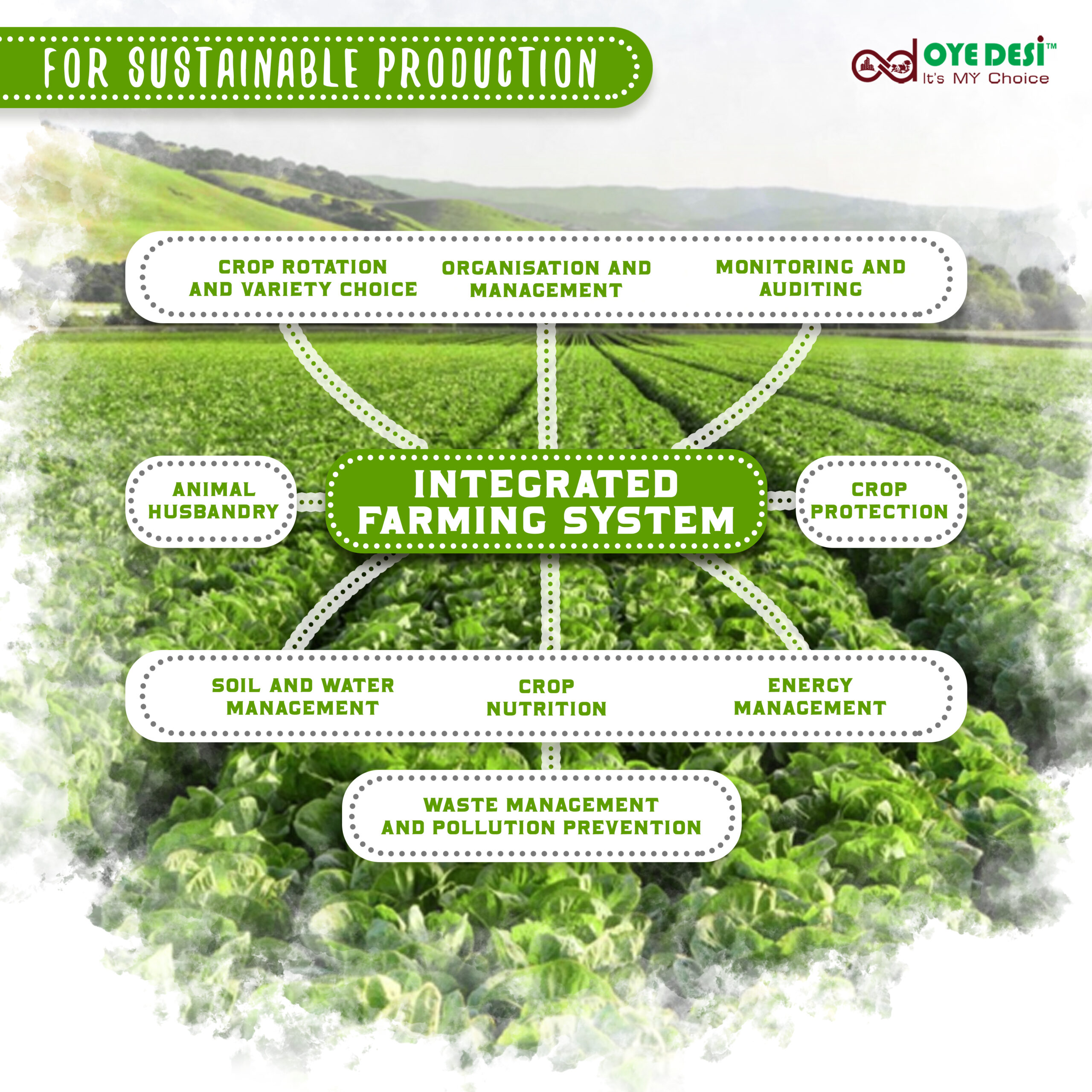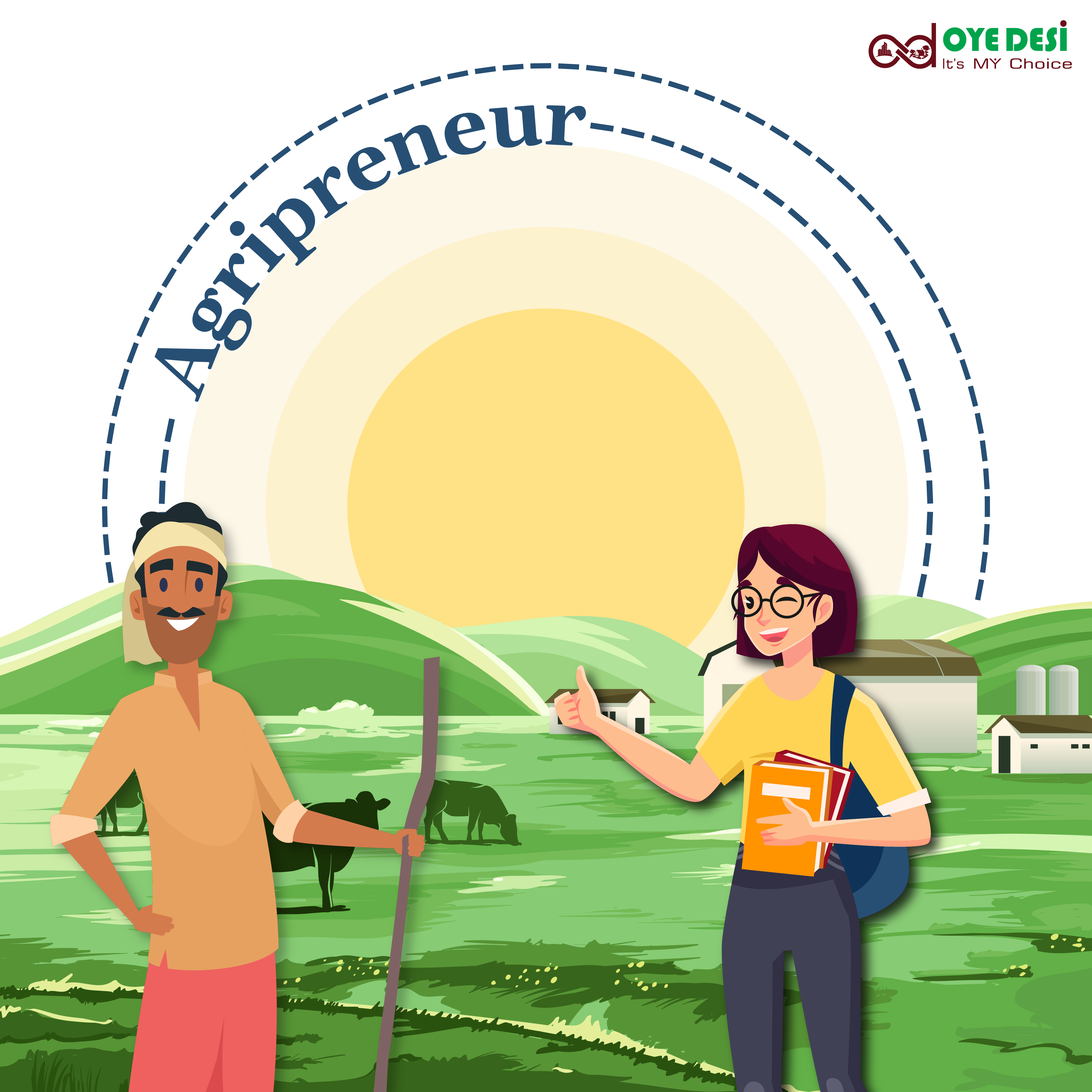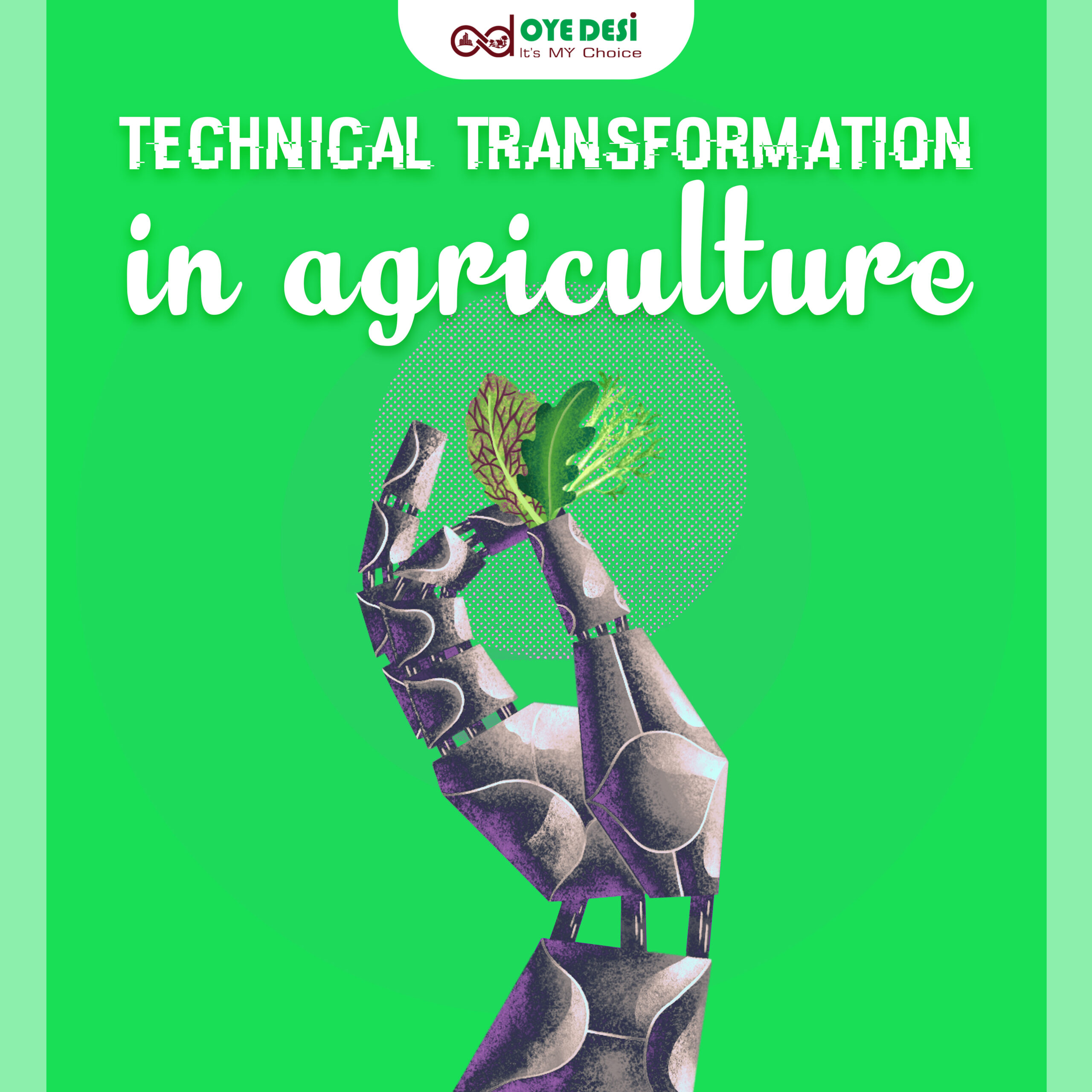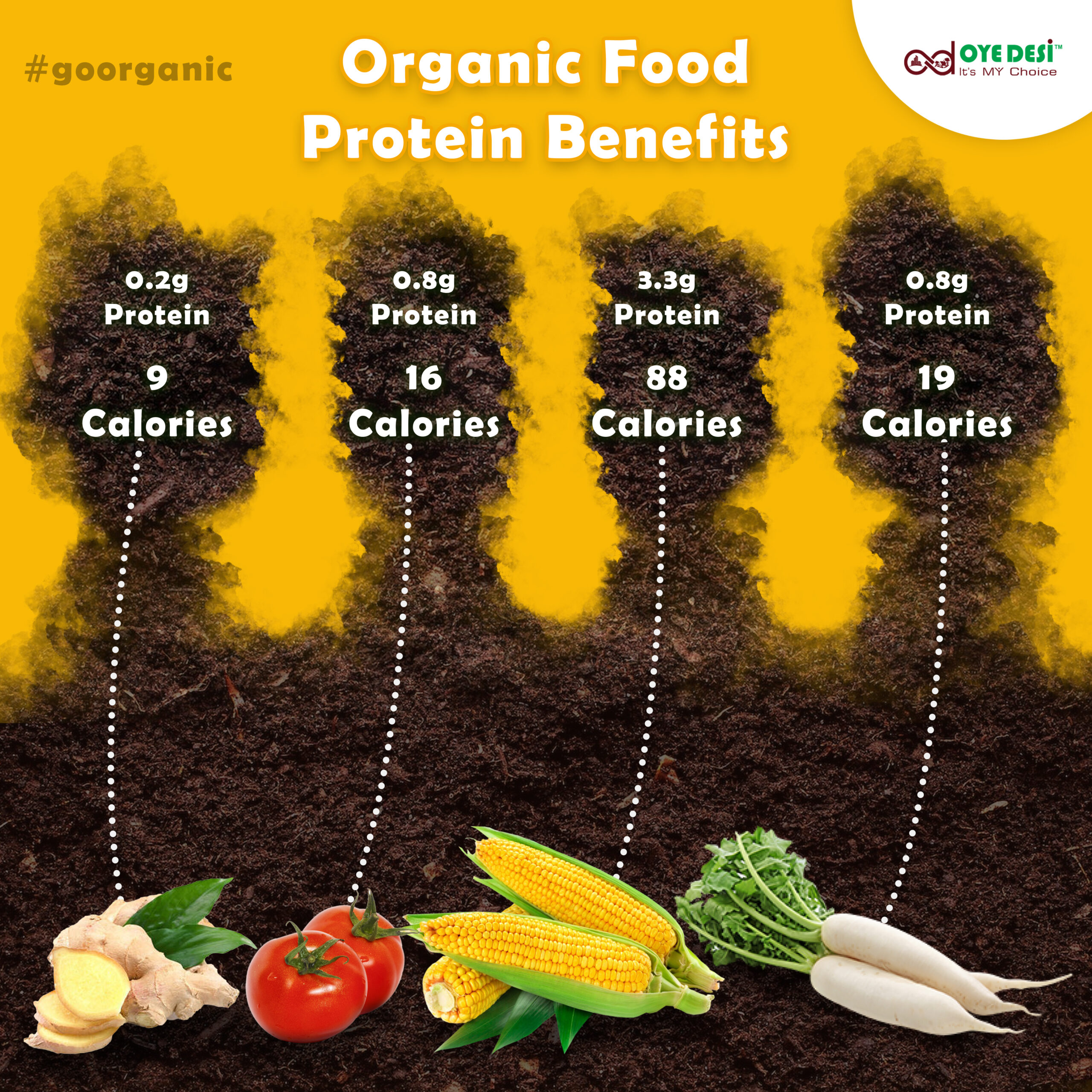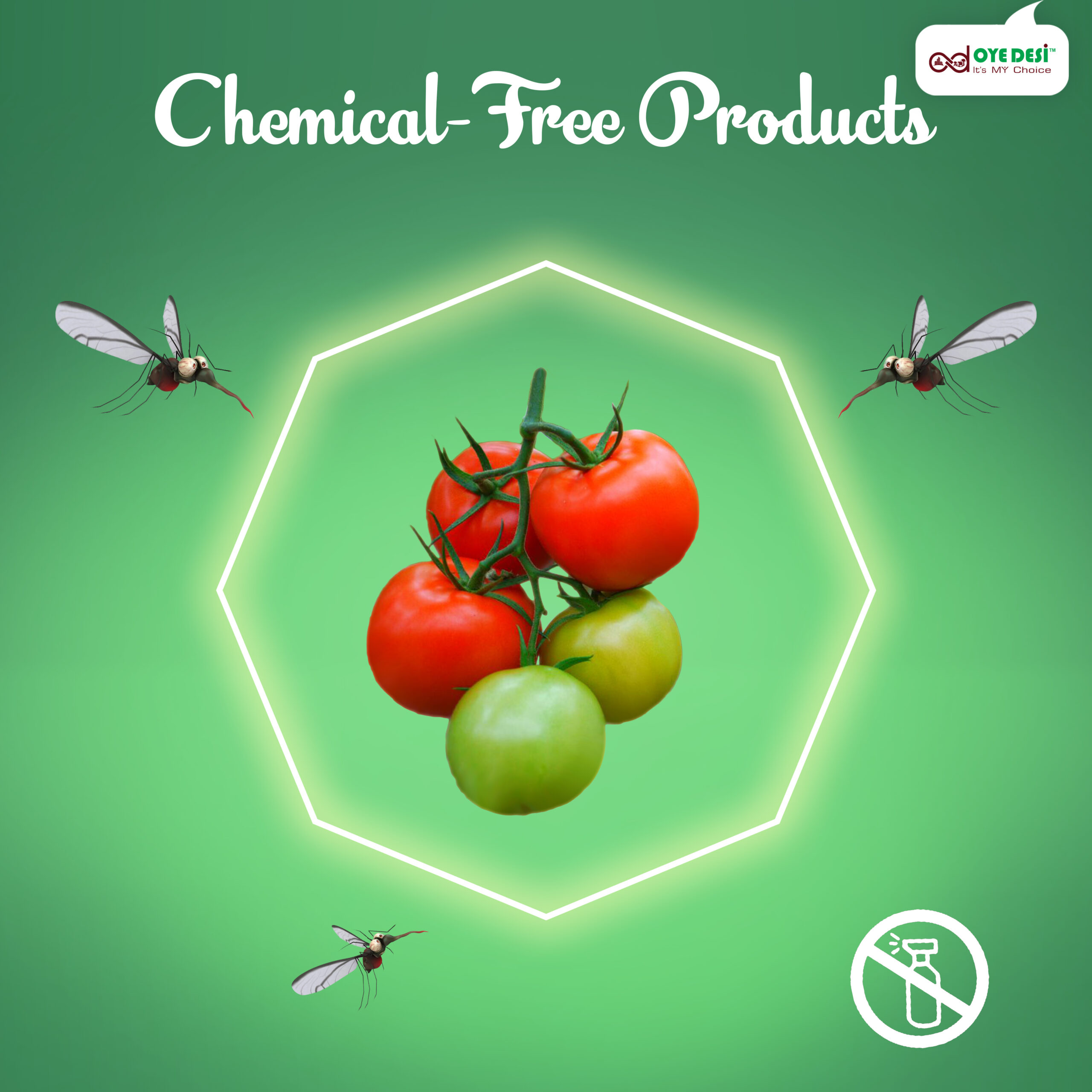Organic farming, importance of organic farming in sustainable agriculture & role of OYEDESI IN ORGANIC FOOD production
Agriculture is a significant part of the Indian economy, accounting for over 17% of total GDP and employing more than60% of the population. Over the last few decades, India’s agriculture has grown at a rapid pace. Food grain production grew from 51 million tonnes (MT) in 1950-51 to 2966 MT in 2019-20, the greatest level since independence. Paddy, wheat, pulses, peanuts, rapeseeds, fruits, vegetables, sugarcane, tea, jute, cotton, and tobacco leaves are among the top three agricultural commodities produced in India. Indian agriculture has made a global mark, thanks to its rapid growth.

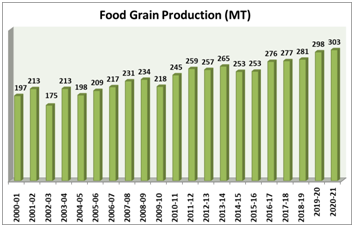
Agriculture & food habits before covid
Abstract:
Mounting awareness of health and environmental issues in agriculture has In today’s agricultural environment, crop yields are higher, but commodity quality is deteriorating day By day, despite increased chemical inputs. Chemical farming’s vicious cycle is now being exposed in the
form of growing crop unsustainability, rising input requirements, poor soil quality, and repeated pest and disease infestation. Excess/indiscriminate use of pesticides and fertilizers has resulted in the introduction of harmful substances into the food chain, the extinction of natural enemies, and the degradation of the environment. The increased usage of pesticides has had major health consequences for humans and the Environment; the Covid period is the best example of this. As a result, improving and maintaining system productivity and resource quality is critical for long-term agriculture sustainability. Many of these issues can be solved by organic farming, which helps to sustain soil productivity and successfully control pests by improving natural processes and cycles in a way that is environmentally friendly.

Food awareness on covid era
With rising awareness about the safety and quality of foods, longterm sustainability of the system, and
Evidence of being equally productive, organic farming is now clear to the agricultural community as the best option for not only protecting/sustaining soil-plant-ecological relationships but also mitigating the negative effects of climate change.
The rest of the world is looking into India for food. Because of China’s immoral and unrealistic actions
during the pandemic, India has emerged as the primary choice to meet global demand. Organic farming has been developed as a viable alternative to conventional farming, as it not only addresses quality and environmental concerns, but also provides a debt-free and profitable source of income.
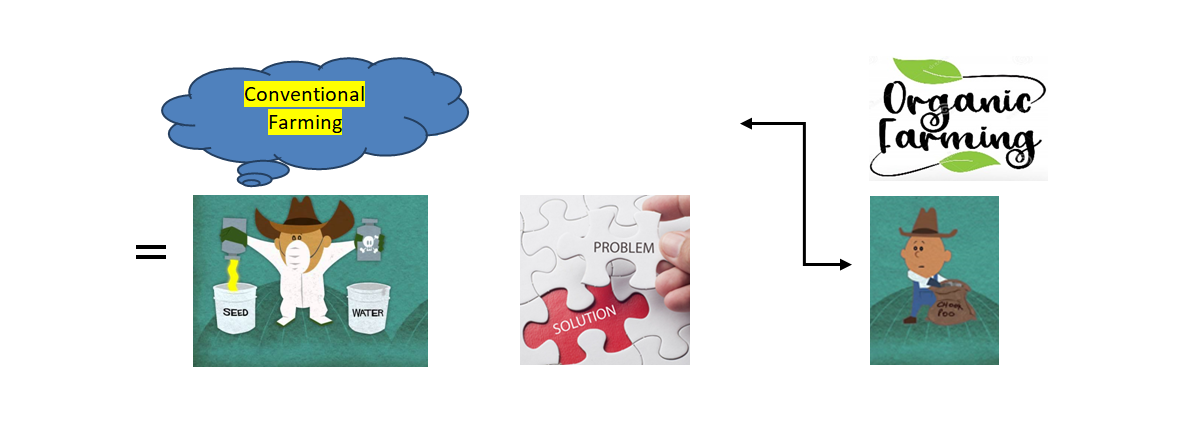
Can organic farming feed the world?
The decrease of agricultural productivity and raising the cost of production, the significance of organic
Agriculture in food security is a contentious issue. Organic farming is the greatest technique to accomplish environmentally and economically sustainable agricultural production, according to theory.
However, a technological breakthrough that can demonstrate largescale, economically sustainable Organic production without wasting time is still a long way off.
In conventional farming, from farmers’ point of view, they get better quantity ( yield) , compared to the quality of the commodity with more investment. Yet, at times they may not realize better price .Using organic methods, not only quantity but also quality & nutrient content of the product is increased, with less investment, they get a good price for the commodity. Farmers are aware of that but not ready to accept & incorporate it in the field due to less yield initially and market manipulation.
OYEDESI started with vision of developing rural entrepreneur in each village. Oyedesi is also working with FPO level engagement, by providing the initial Inputs in Pre-harvest and Post-harvest through capacity building, educating, creating awareness and crop planning.



Importance of organic farming:
- Growing public awareness of agricultural health and environmental issues has required the production of organic food, which is proving to be a profitable source of rural income.
- During the last 10 years, organic agriculture has proven to be reliable.
- Organic agriculture has the potential to become a low-cost, long-term farming option in the Country, especially for small farmers in rainfed areas, and can help them enhance their food and financial security.
- It aids in the production and distribution of adequate, safe, and nutritious food to the nation’s Producers and consumers.
- Organic farming is thus significant because it is a holistic production management method that Promotes and increases agroecosystem health, including biodiversity, biological cycles, and soil biological activity.
- organic methods they can boost farm productivity, repair decades of environmental harm, and Link small farm families into more sustainable distribution networks, leading to increased food Security.
- Organic farming is one technique to promote food security or self-sufficiency.
- It enhances the physical features of the soil, such as granulation, tilth, aeration, and root penetration, as well as increasing the water-holding capacity and reducing erosion.
- It enhances the chemical features of the soil, such as nutrient supply and retention, nutrient loss into water bodies and the environment, and beneficial chemical reaction.
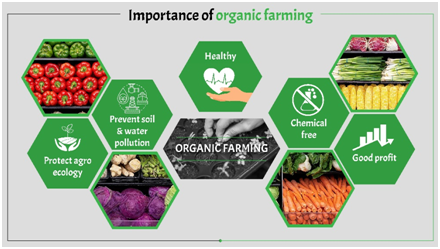
Role of oyedesi in organic food production & food supply chain
The majority of farmers engage in conventional farming, which produces high yields but poor profits.
Farmers are suffering various challenges in the fields as a result of chemical farming, such as loss of Soil fertility, ground water pollution,It has the potential to be detrimental to the environment,It comes at a high price,and so on. Farmers are also facing many issues in the market, such as transportation, middle man problems, storage problems and lower commodity prices.
The cost of production is higher in conventional farming, and they will receive lower market prices, making the farmer unsustainable. Furthermore, eating conventionally farmed food exposes customers to health risks such as infertility, cancer, and other diseases.
The safe to eat concept was developed by Oyedesi in collaboration with Farmer. Oyedesi is a sign of true organic food. Organic food is also connected with good health and happiness. Organic food is about more than simply greater flavor and nutrition; it’s also about eliminating human health risks and living in peace with the environment. It’s not just about maintaining excellent health; it’s also about contributing to a food system that considers both people and the environment. From the farmer to you, the consumer, the Oyedesi healthy value chain is dedicated to creating an environmentally safe and secure food system.
- So OYEDESIis assisting farmers in a long-term manner by providing end-to end solutions and direct purchase with farmers, removing the need for a middleman.
- Farmers may make more money with less capital.
- Oyedesi is also engaged at the FPO level, providing Initial Inputs in Pre-harvest and Post-harvest through capacity building, education, & awareness creation.
- Creating a Socio-Economic Model by establishing supply chain sustainability.
- OYEDESI is committed to improvise and help farmers’ standard of life.
- We encourage our farmers to use the organic manure to grow nutrition’s product.
- We strongly discourage and train them not to use the chemicals which induce any sort of growth booster which impacts the nutrition in the products.
- We are proudly saying that we are directly working with farmers by providing all the necessary inputs like seeds/samplings, organic manures, Neem-based products, etc.& proper information like crop planning, crop monitoring,& with the help of experienced agronomists will suggest the farmers control pests & diseases, etc.
Conclusion
- Organic farming must be both ecologically and economically sustainable in order to enable wider adoption, secure livelihoods, and ensure consumer affordability.
- India has a long history of organic farming, and the growing domestic market for organic food Can give the organic movement a boost.
- In order to achieve largescale organic conversion, a consumer and farmer education effort is Required.
- Oyedesi is dedicated to providing an online digital marketplace, empowering rural youth to Connect farmers with consumers, developing sustainable practises to educate farmers and consumers on digital platforms, and developing womenspecific entrepreneurship models to Ensure a more focused and responsible supply chain.
- Oyedesi Committed towards the Health of People. We will do our best to serve OUR CUSTOMER.

